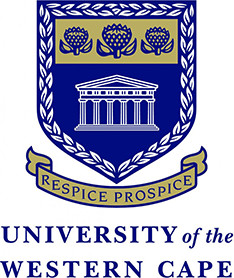Senior leadership of Malawi's groundbreaking paralegal organisation to enjoy training by ACJR on corporate governance, project management, monitoring and evaluation, fundraising and legal research.
Events
Pursuant to research conducted by ACJR on the state of democratic policing commissioned by the Civilian Secretariat for the Police Service (CSPS) of South Africa, ACJR will be conducting skills transfer training with members of the CSPS.
ACJR will participate in a panel discussion on Criminalisation of Poverty: Vagrancy and Related Laws and their Impact on Children’s Access to Justice at the Continental Conference on Access to Justice in Addis Ababa, Ethiopia.
Toward developing a road map for human rights treaty monitoring and reporting so as to strengthen South Africa’s system of human rights-based planning and accountability.
The Civilian Secretariat for the Police Service (CSPS) commissioned research on the state of democratic policing, pursuant to its oversight function.
ACJR's final Community Courts Evaluation report was completed on 17 August 2017. The report was tabled at the Provincial Development Committee meeting on the 28 November 2017 where it was resolved that the report be workshopped.
A draft report on data trends relating to the office of the WCPO was submitted on 25 January 2018. This is a consultative meeting with WCPO staff to discuss the findings of the report.
Argument resumes for the fourth and fifth day.
ACJR, Lawyers for Human Rights (LHR) and the University of Essex host a one-day civil society consultation with the UN Special Rapporteur on Health, on the right to health and the deprivation of liberty
Organised by the South African Human Rights Commission (SAHRC) and the Association for the Prevention of Torture (APT).
ACJR participates in JICS stakeholder forum
The Regional Conference on the Formal Recognition of Criminal Justice Paralegals is organised by the Paralegal Advisory Service Institute.
Imprisoning the Nation: Minimum sentences in South Africa
The Legal Training Centre is hosting a workshop on the prevention of torture in Mozambique, in collaboration with REFORMAR - Research for Mozambique and ACJR.
The conference, under the auspices of the Access to Justice component of the Ministry of Justice of Zambia, is funded by GTZ and the EU, and seeks to spearhead reforms in Zambia.
PALU's 8th Annual Conference, the leading platform for African lawyers, bringing together distinguished Lawyers and Lawyers' Associations as well as Law firms, Human Rights and Good Governance Professionals.
Validation of the results of an ACJR evaluation of three Western Cape Community Courts
This report seeks to show that the deprivation of liberty by the state in the attempt to maintain “law and order” has a clear and measureable socio-economic impact on individuals and their dependents which is frequently disproportionate. States which seek to maximise development should minimise the conditions under which deprivation of liberty is lawful, and seek to reduce the total number of instances of deprivation of liberty, as well as their duration. The excessive use, frequently for minor offences and for extended periods, of pre-trial detention has negative consequences and is counter-developmental. This report measures and describes these negative consequences. In Zambia, it was found that such detention may permanently sever family relations.
Joint University of Missouri - University of the Western Cape Seminar (ACJR; Department of Public Law and Jurisprudence)
The morning session will be devoted to a discussion on the harmonisation of penal and correctional law with Mozambique's Constitution. The afternoon session will explore legal provisions relating to release from detention before trial ("bail").
This report seeks to show that the deprivation of liberty by the state in the attempt to maintain “law and order” has a clear and measureable socio-economic impact on individuals and their dependents which is frequently disproportionate. States which seek to maximise development should minimise the conditions under which deprivation of liberty is lawful, and seek to reduce the total number of instances of deprivation of liberty, as well as their duration. The excessive use, frequently for minor offences and for extended periods, of pre-trial detention has negative consequences and is counter-developmental. This report measures and describes these negative consequences. In Mozambique, it was found that the majority of detainees are of prime income-earning age and their families are highly reliant on their income. Their continued incarceration in many cases more than halves the family income and places additional economic and social burdens on the family, including the cost and burden of visiting the detainee for extended periods.
The work and performance of the National Prosecuting Authority (the NPA), and the appointment process of the National Director of Public Prosecutions.

